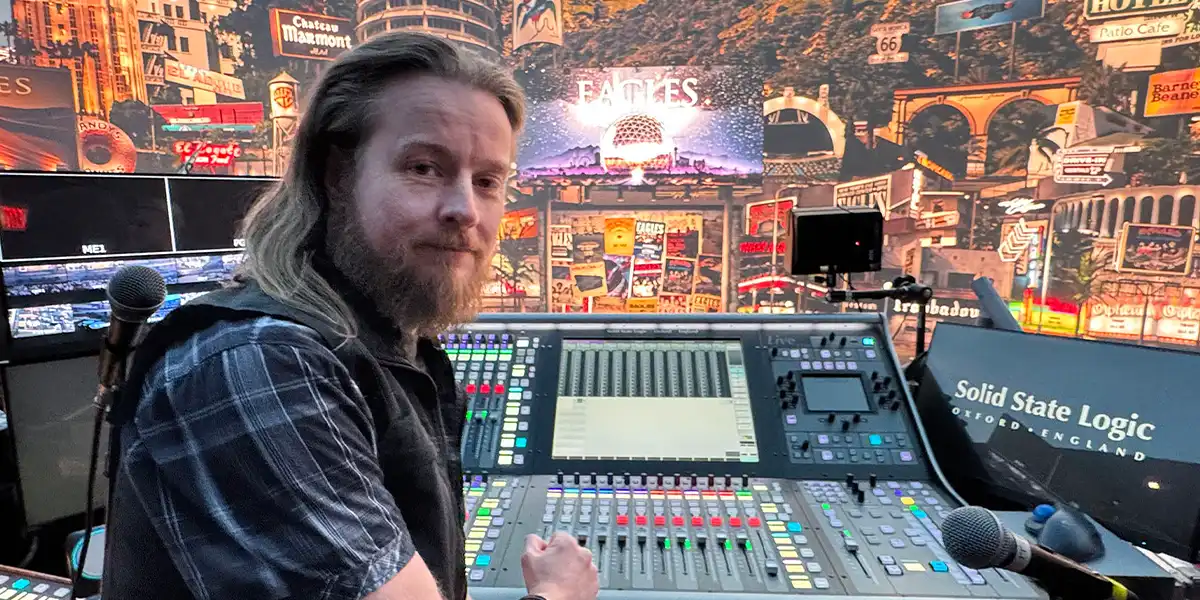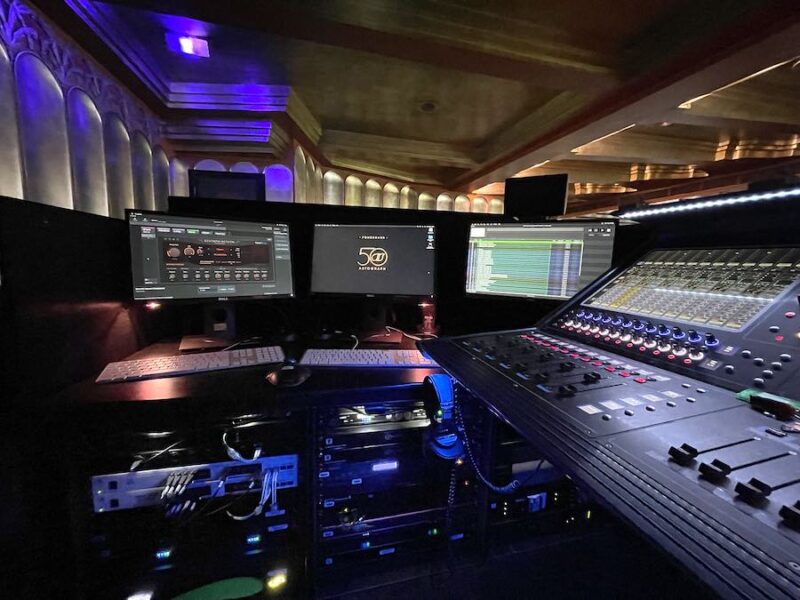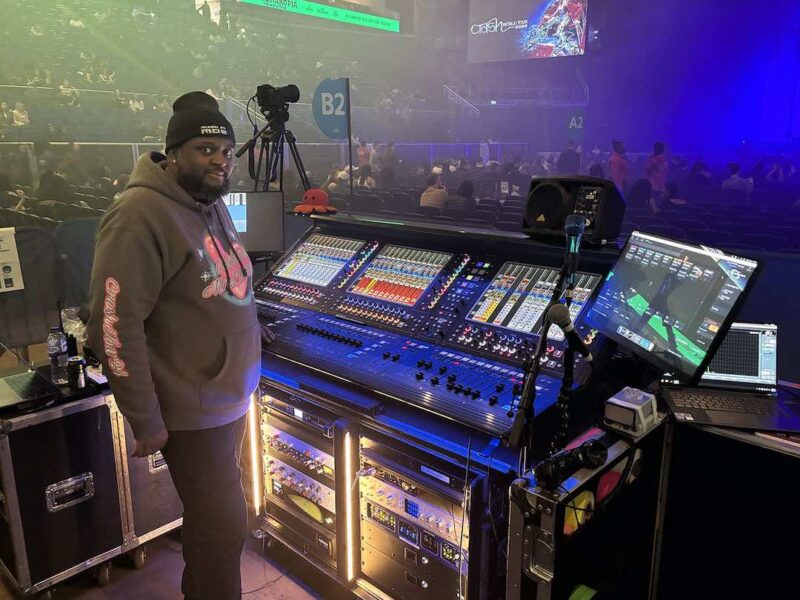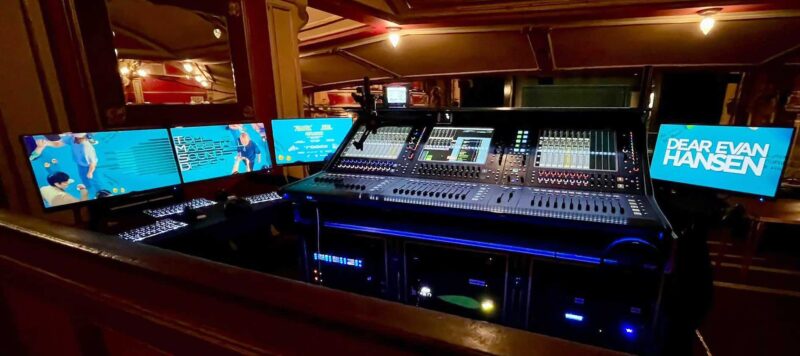Fourier Audio transform.engine Keeps Eagles’ Vocals in Tune at the Las Vegas Sphere

Eagles FOH engineer Tom Evans, pictured at the Sphere’s house mix position, joins a growing roster of Fourier Audio transform.engine users (photo credit: Jeff Touzeau)
As the Eagles continue their residency at the Sphere in Las Vegas, front-of-house engineer Tom Evans has turned to the Fourier Audio transform.engine to handle the venue’s challenging acoustics. The live plugin platform allows Evans to retain his finely tuned mix setup while integrating precision processing tools tailored for the Sphere’s immersive sound system.
The Eagles’ Sphere residency, which began in September 2024 and runs through February 2026, includes 52 shows featuring the band’s signature harmonies and classic catalog. Evans, who has mixed the Eagles since 2017, said adapting the group’s meticulously balanced vocals to the Sphere’s unique acoustic design required new tools. The venue’s 42-zone sound system includes main PA components positioned behind the stage, which Evans noted could introduce unwanted feedback.
“Because of the clever beam-forming physics that they’ve got going on in there, one of the artifacts that’s produced is a 4kHz lobe that hits the downstage edge,” he said. “So not only is the PA behind the stage, it’s also squirting that extra 4k, which is a very unpleasant feedback frequency for vocal microphones, right at the vocal microphones.”
Evans sought advice from other engineers who had mixed at the Sphere, including Derek Featherstone of Dead & Company, and was introduced to Fourier Audio’s transform.engine as a host for McDSP’s NR800 noise-reduction plugin. “It’s a noise reduction plugin that lets you target specific problem frequencies and certain individual thresholds,” Evans said. “And I figured the simplest way to integrate it with my SSL L550 Plus console would be the Fourier transform.engine. And it turned out to be just that.”

Tom Evans is pairing his transform.engine-hosted plugins with a Solid State Logic L550 Plus mixing console for all 52 of the Eagles’ performances at the Sphere (photo credit: Jessica Evans)
Testing the setup in the Sphere’s rehearsal space, Evans combined the NR800 with McDSP’s NF575 notch filter plugin to manage the 4kHz feedback and other sonic challenges while maintaining the clarity and warmth of the band’s signature vocal blend.
“Obviously, I have quite a few vocal mics on that stage, and I’m inserting the plugins through the transform.engine on the vocal channels, and the result has been excellent,” Evans said. “I’m able to maintain all of my settings on all of my outboard and other processing, but easily manage the Sphere itself, all with virtually no latency.”
Evans added that he also uses the system on the band’s acoustic guitars to manage RF interference. “There’s an awful lot of RF in that building and that affects specific frequencies on some of the models of pickups in the acoustic guitars,” he said. “So using the notch filter to notch out exactly those frequencies proves very effective, and again with practically zero latency. The transform.engine has been a great addition to the setup here, in part because you never really know it’s there. It just works.”
The transform.engine continues to play a central role in maintaining the Eagles’ consistent sound through the remainder of the Sphere run, blending legacy tone with the demands of one of the world’s most advanced concert environments.





